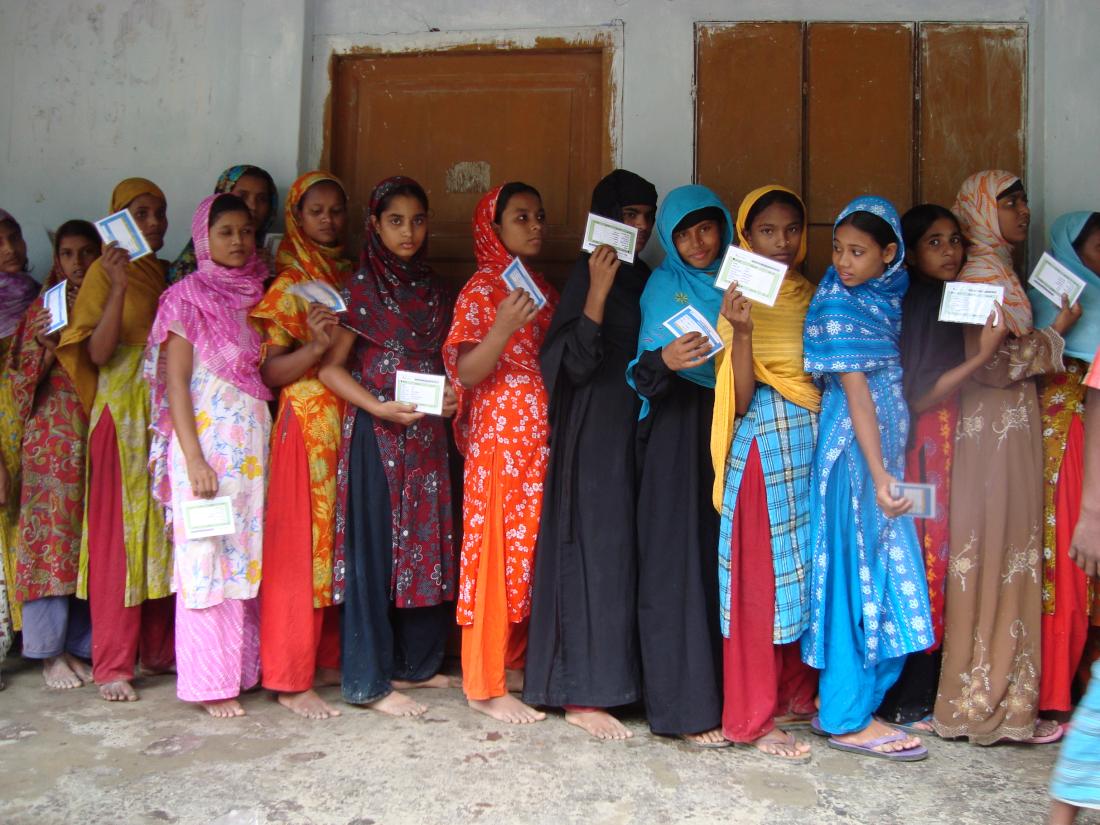Empowering Girls in Rural Bangladesh
- Children
- Women and girls
- Youth
- Dropout and graduation
- Enrollment and attendance
- Age of marriage
- Women’s/girls’ decision-making
- Gender attitudes and norms
- Age of childbearing
- Fertility/pregnancy
- Financial literacy
- Incentives
- Soft skills
- Empowerment training
- Norms change
- In-kind transfers
- Non-monetary incentives
- Parental engagement
Policy issue
Throughout the world, cultural stigmatism has often excluded women from receiving education or earning income equivalent to men, though educating a woman increases her financial independence and dramatically improves the chances that her children will survive, be better nourished and better educated. For less developed nations in particular, women may embody a previously untapped source of human capital, and those countries that have embraced more aggressive policies in regards to gender equality in education can be expected to return greater social and economic benefits.
Context of the evaluation
When it comes to education, social mobility, and marriage choices, adolescent girls in Bangladesh appear to face numerous barriers. In recent years, school enrollment rates have improved, but girls are still often forced to drop out of school, to be married off at a young age. A recent UNICEF study shows that almost 50% of girls are married by the age of 15, and 60% are mothers by the age of 19. Effectively, this harms their health, education, and future decision-making prospects as well as their future income-generating potential and their status within the family. While some female-empowerment programs focus on rights-based campaigns or skill-building activities within the community, little is known about the relative costs and effects these different programs have on the social and economic empowerment of adolescent girls.

Details of the intervention
Researchers are cooperating with the Bangladesh office of Save the Children USA to implement a broad range of interventions, aimed at empowering adolescent girls in southern Bangladesh. The Kishoree Kontha (KK) project operates through small peer-led sessions in Safe Spaces (spaces within a community where adolescent girls can safely meet on a regular basis). Out of a sample of 460 target villages, 307 villages have been randomly selected to receive one of four intervention packages. The remaining villages will serve as the comparison group. The four intervention packages are:
- Basic Package: This package provides literacy and numeracy training for illiterate girls, as well as study support and educational mentoring for school-going girls. It also provides social competency training, which includes information on health, rights, and general negotiation and social skills.
-
Livelihoods Package: This package complements the Basic package with additional sessions on financial livelihood readiness. Rather than providing direct vocational training, these sessions build entrepreneurial and budgeting skills that are applicable to a wide
variety of financial opportunities in the community. -
Full Package: This package includes all the sessions of the Livelihood package, but adds a direct incentive to delay marriage until the legal age of 18 years old. All girls in targeted villages, between 15 and 17 years old, will be eligible to receive approximately 16 liters of
cooking oil per year, on the condition that they remain unmarried. This amount surpasses the financial cost associated with delaying marriage that families must pay in the form of dowry. - Delayed Marriage Package: This package provides only the incentives to delay marriage, as described above, without any peer-led sessions in the communities. As such, it will allow researchers to disentangle the effects of direct conditional incentives from changes in attitudes and skills.
Results and policy lessons
Results forthcoming.







